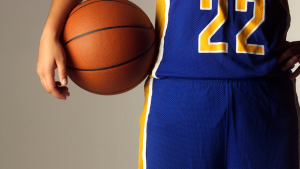7 Powerful Strategies to Excel: Balancing Sports and Academics for Student Athletes
[ez-toc]
Balancing sports and academics is a challenge that many student-athletes face. Juggling rigorous sports commitments while striving for academic excellence requires effective time management and prioritization. This blog post will explore practical tips and strategies for student-athletes to excel in sports and academics by balancing their commitments. Let’s dive in and discover how you can strike a harmonious equilibrium between your athletic pursuits and academic responsibilities.

Understanding Priorities
In balancing sports and academics, student-athletes must begin by understanding their priorities. It’s important to identify personal goals and recognize the value of both sports and academics in their lives. While excelling in sports can provide opportunities for scholarships, personal growth, and potential professional careers, academics lay the foundation for a successful future beyond the sporting arena. By acknowledging the importance of both aspects, student-athletes can approach their commitments with a clear understanding of their purpose and significance.
Creating a Schedule
One of the fundamental keys to successful time management is creating a well-structured schedule. Student-athletes should implement time management techniques to allocate sufficient time to sports, academics, and other commitments. Prioritizing tasks and setting specific goals can help guide their schedule effectively. Utilizing tools like calendars or planners can aid in visualizing and organizing their daily, weekly, or monthly activities. Consider implementing a block scheduling system to allocate specific time slots for practices, games, study sessions, and leisure activities, ensuring a well-rounded approach to their daily routine.
Effective Study Strategies
Maximizing study time is essential for student-athletes to excel academically. Creating an optimal study environment that minimizes distractions and promotes focus is crucial. Find a quiet place conducive to learning and establish a routine that signals the brain that it’s time to concentrate and write essays. Breaking down tasks into smaller, more manageable goals helps prevent overwhelm and enables progress. Explore study techniques that align with individual learning preferences, such as active reading and note-taking, or utilize time management methods like the Pomodoro Technique (alternating work and rest intervals).

Communication and Collaboration
Open communication with coaches, teachers, and teammates is vital for student-athletes. Student-athletes can ensure better coordination and understanding by keeping all parties informed of their commitments and schedules. Collaboration with peers can also be beneficial. Forming study groups or seeking support from teammates can foster a sense of camaraderie while providing opportunities for academic assistance and mutual motivation. Additionally, seeking guidance and resources from academic support services like EssaysToolkit can offer valuable insights and strategies tailored specifically for student-athletes.
Taking Care of Physical and Mental Health
Maintaining physical and mental well-being is crucial for student-athletes to perform at their best. Balancing sports and academics requires adequate rest and recovery. Student-athletes should prioritize sleep and avoid compromising their sleep routine. Proper nutrition and hydration are equally important, as they fuel both physical and mental activities. Managing stress and practicing self-care techniques, such as meditation, deep breathing exercises, or engaging in hobbies, can help alleviate pressure and maintain a healthy mindset.
Utilizing Resources
Student-athletes should take advantage of the resources available to them. Tutoring or academic assistance programs can provide additional support in challenging subjects or help refine study techniques. Online resources and educational apps can offer interactive tools, and study aids that complement traditional learning methods. Seeking mentorship or guidance from older student-athletes or alumni who have successfully balanced sports and academics can provide valuable insights and practical advice.
Finding a Supportive Network
Building a solid support system is essential for student-athletes to navigate the demands of sports and academics. Family, friends, coaches, and teammates can offer encouragement, understanding, and assistance when needed. Surrounding oneself with like-minded individuals who value sports and academics can create a positive and supportive environment. Additionally, joining student athlete organizations or clubs can foster connections with peers with similar experiences and challenges.
Overcoming Challenges
Student-athletes may encounter unique challenges in balancing sports and academics. Strategies for managing time during travel or competition periods can help prevent falling behind in schoolwork. Developing resilience and adaptability is crucial when faced with setbacks or conflicts between sports and academics. Embracing a growth mindset and seeking creative solutions can lead to successful outcomes.
Balancing sports and academics is achievable for student-athletes with effective time management, communication, and self-care strategies. Student-athletes can excel both on the field and in the classroom by understanding their priorities, creating a well-structured schedule, utilizing study techniques, and seeking support from their network and available resources. Remember, finding a balance requires commitment, perseverance, and adaptability. By implementing these tips and strategies, student-athletes can thrive in both their sports commitments and academic pursuits, paving the way for a bright future.